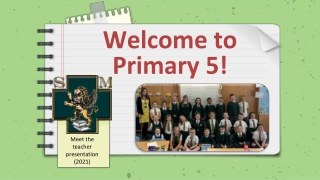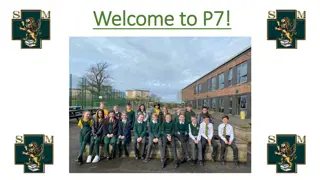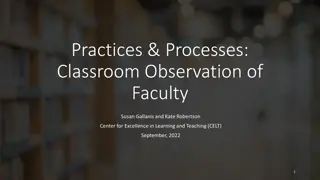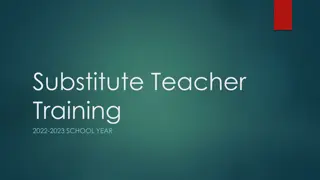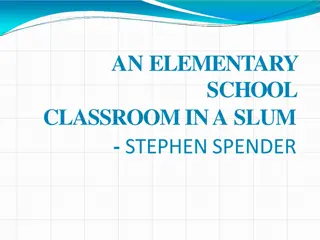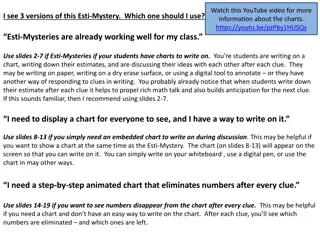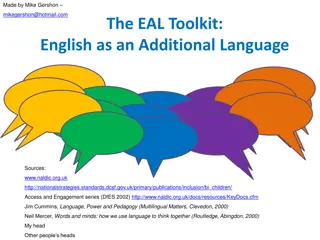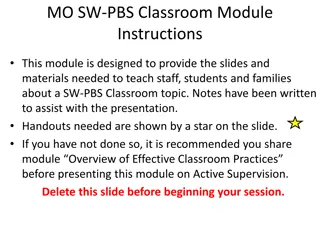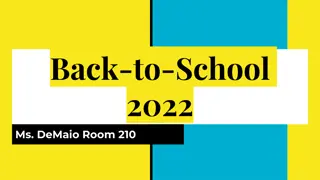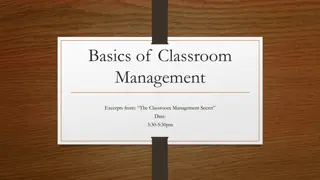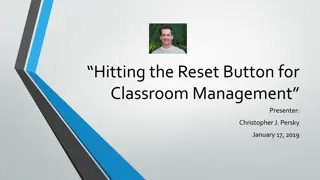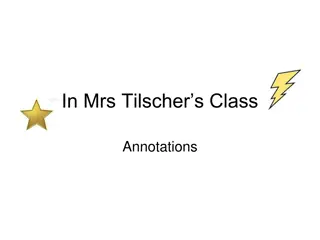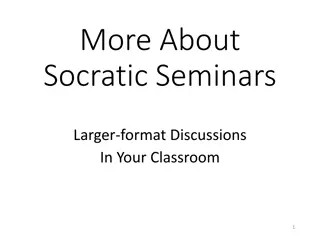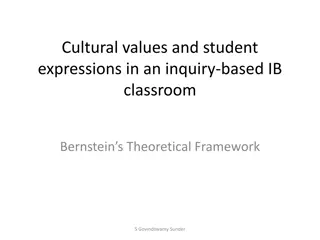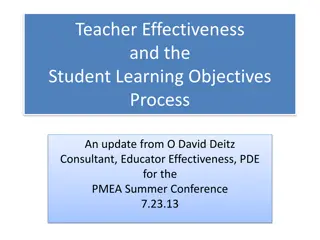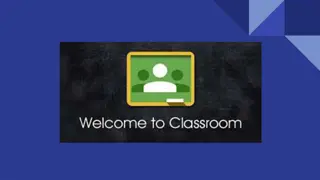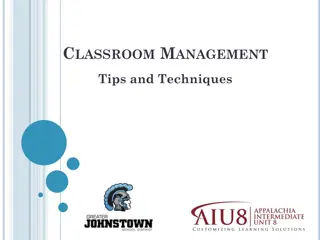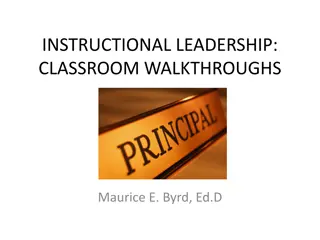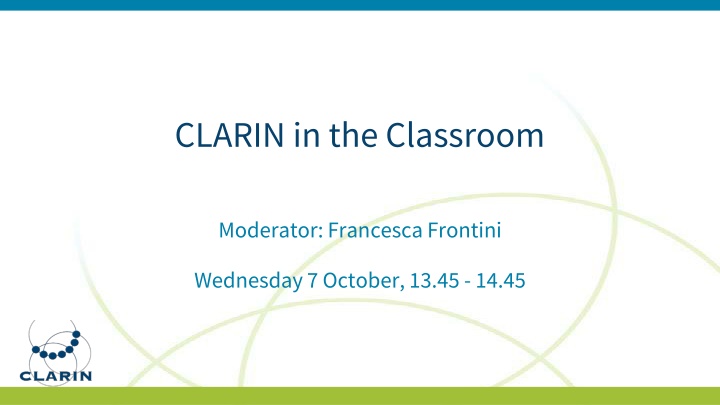
Innovative Approaches in Linguistic Education
Explore cutting-edge methodologies in linguistic education through CLARIN presentations, covering topics such as online course development, corpus tools in German linguistics, pedagogical applications of linguistic corpora, and experimental phonetics. Discover how technology is revolutionizing language teaching and research.
Download Presentation

Please find below an Image/Link to download the presentation.
The content on the website is provided AS IS for your information and personal use only. It may not be sold, licensed, or shared on other websites without obtaining consent from the author. If you encounter any issues during the download, it is possible that the publisher has removed the file from their server.
You are allowed to download the files provided on this website for personal or commercial use, subject to the condition that they are used lawfully. All files are the property of their respective owners.
The content on the website is provided AS IS for your information and personal use only. It may not be sold, licensed, or shared on other websites without obtaining consent from the author.
E N D
Presentation Transcript
CLARIN in the Classroom Moderator: Francesca Frontini Wednesday 7 October, 13.45 -14.45
Introduction CLARIN 2
Mietta Lennes, University of Helsinki / FIN-CLARIN Building and maintaining online courses in digital research methods CLARIN 3
Laura Herzberg, University of Mannheim Corpus literacy in German linguistics: the usage of corpus tools and platforms in academic classrooms CLARIN 4
Jurgita Vaienonien and Jolanta Kovalevskait, Vytautas Magnus University Pedagogical Applications of ORVELIT Corpus 5
Katarzyna Klessa, Adam Mickiewicz University in Poznan Documentary linguistics, corpus linguistics, experimental phonetics 6
Velka Popova, Radostina Iglikova and KrarimirKordov, Konstantin Preslavsky University ofShumen LABLASS and theBULGARIAN LABLING CORPUS forTeaching Linguistics Who are we? The Applied LinguisticsLaboratory (LABLING) at the Konstantin Preslavski University of Shumen is technological partner with the ClaDa-BG National consortium. The LABLING team`s research focuses on creating computer corpora of children`s speech and collectionsof associative data. Results from two years of work on the ClaDa-BG project BULGARIAN LABLING CORPUS corpus of Bulgarian childen`s speech, published on CHILDES (https://childes.talkbank.org/access/Slavic/Bulgarian/LabLing.html) LABLASS - web-based system for systematizing and organizing word associations into dictionaries 7
BULGARIAN LABLING CORPUS The LabLing corpus includes two segments: the longitudinal corpus and the narrative corpus. The longitudinal corpus contains the transcribed data of 4 Bulgarian girls . The narrative corpus contains 91 transcripts of preschool children`s narratives extracted from 50 monolingual native speakers of Bulgarian. LABLASS Currently, the pilot version of the system has been built and is being constantly updated. The abilities of the web-based LABLASS system developed within the ClaDa-BG project are not limited to including available lexicographic resources but are instead much broader, which results in creating new dictionaries, the visualization and comparison of data from different sources. 12 students who have been trained to work with the system enter the associative data for the creationofseveral dictionaries: Dictionary of Bulgarian word associations from the early 20s of the 21st century Dictionary of word associations of monolingual (Bulgarian) and bilingual (Bulgarian and Turkish) persons New dictionary of child word associations 8
Practical data application in the curricula of linguistic disciplines - the curricula of the disciplines Psycholinguistics, General Linguistics and Child Linguistics have been extended; in lectures as material for demonstrations; in Psycholinguistics practical modules as methodological models for creating original corpora by the students themselves; in students` course assignments and theses Specificities of the Vocabulary of the Bulgarian Native Speaker Nowadays . MA thesis, 2019. in teaching resources Popova, Velka. 2020. Psycholinguistics as Experimental Linguistics. Shumen Popova, Velka. 2020. Rechniknadetskiteslovesni asociacii. Shumen. Dictionary of children`s word associations. 9
WiktoriaMieleszczenko-Kowszewicz, SWPS Universityof Social Sciences and Humanities Academic skills 10
Kristina Pahor de Maiti, Faculty of Arts, University of Ljubljana The making of the siParl tutorial 11
Federico Boschetti and Monica Monachini, CNR-ILC Pisa and CLARIN-IT Digital Philology and Computational Linguistics 12
Simonetta Montemagni and Giulia Venturi, CNR-ILC Pisa and CLARIN-IT, Computational Linguistics 13
Inguna Skadia, Ilze Auzia and Baiba Saulte, Institute of Mathematics and Computer Science, University of Latvia CLARIN in the Classroom: Case of Latvia 14
Mikko Tolonen, University of Helsinki Integrating Computation into the Humanities: Using Clarin Data in the Digital Humanities Hackathon in Helsinki 15
Lonneke van der Plas UPSKILLS, an Erasmus+ project that will foster research-based teaching University of Malta (UM) 16
Discussion CLARIN 17

